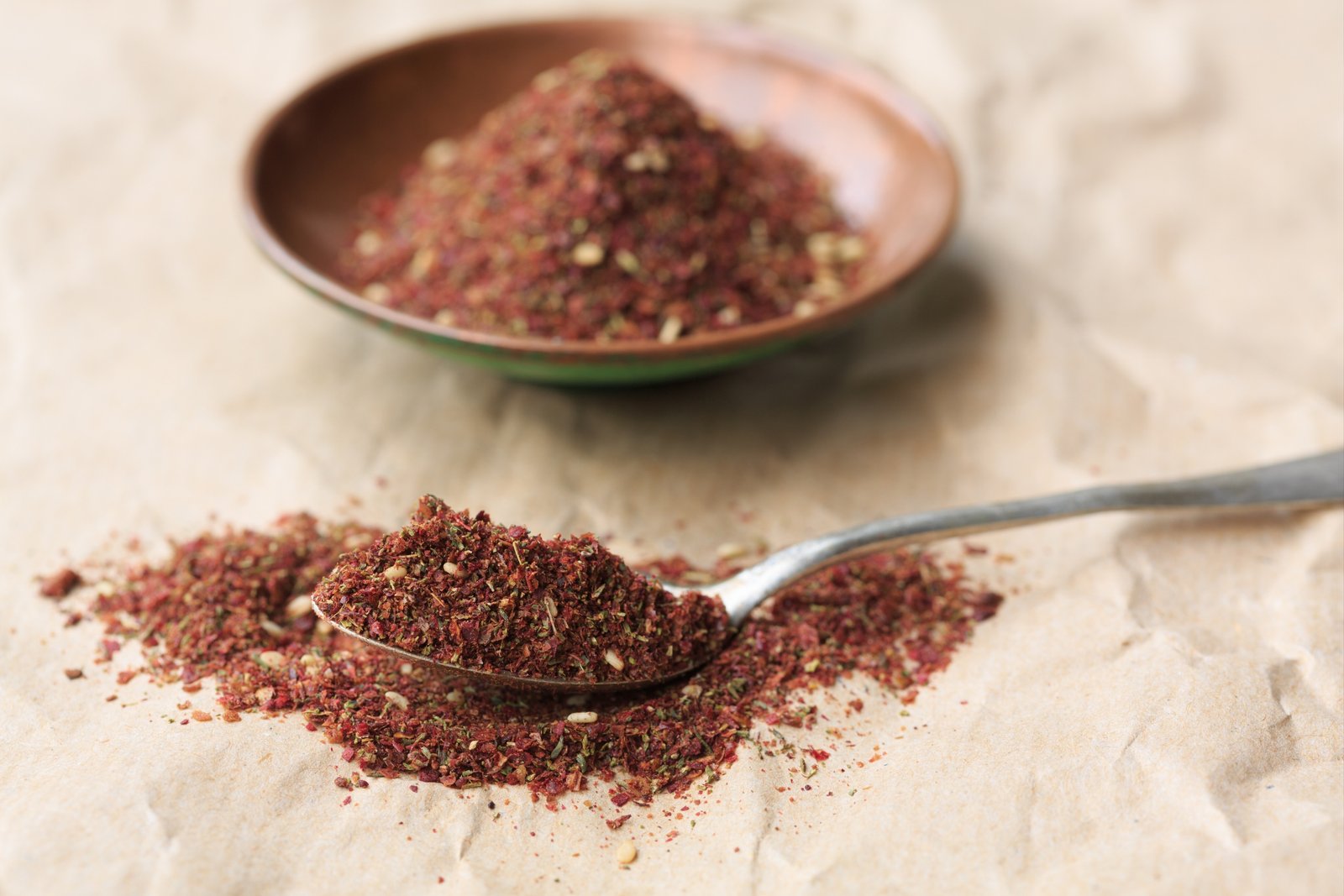Za’atar: Unlocking the Rich History and Distinctive Flavors of the Middle East

Introduction
Za’atar, the exquisite Middle Eastern spice blend, is a gateway to the rich and diverse culinary traditions of the region. Its earthy, tangy, and savory notes have been cherished for generations, making it a staple in Middle Eastern kitchens. Derived from the wild thyme plant, Za’atar is traditionally mixed with sesame seeds, sumac, and salt, resulting in a flavor profile that is both aromatic and robust. Not only does Za’atar elevate the taste of countless dishes, but it also boasts numerous health benefits. In this article, we will take you on a journey through the history, uses, and recipes involving Za’atar, empowering you to master the art of this remarkable spice blend.
History and Origins of Za’atar
Za’atar has a rich history that dates back centuries, with its origins deeply rooted in the Middle East. The word “za’atar” itself refers to both the spice blend and the wild thyme plant (Origanum syriacum) from which it is derived. This aromatic herb grows abundantly in the Mediterranean region and has been used for culinary and medicinal purposes for thousands of years. Ancient civilizations, including the Greeks and Romans, recognized the unique flavor and health benefits of za’atar, incorporating it into their daily lives.
Ingredients and Variations of Za’atar
The traditional recipe for Za’atar consists of four key ingredients: wild thyme, sesame seeds, sumac, and salt. The wild thyme provides the foundation for the blend, imparting a distinct herbal aroma. Sesame seeds add a subtle nutty undertone, while sumac contributes a tangy, lemony flavor. Salt enhances the overall taste and acts as a preservative. However, variations of Za’atar can be found throughout the Middle East, each with its own twist. Some variations include the addition of dried marjoram, oregano, or cumin, resulting in unique flavor profiles that reflect the culinary preferences of different regions.
Health Benefits of Za’atar
Beyond its incredible taste, Za’atar offers a range of health benefits. Packed with antioxidants, vitamins, and minerals, it can boost overall immunity and promote a healthy digestive system. The wild thyme in Za’atar is known for its antimicrobial properties, aiding in combating infections. Sesame seeds, rich in healthy fats and essential nutrients, contribute to heart health and promote healthy skin. Sumac, with its high antioxidant content, helps reduce inflammation and supports a healthy immune system. Altogether, Za’atar is a spice blend that not only delights the palate but also nourishes the body.
Culinary Uses of Za’atar
Za’atar is an incredibly versatile spice blend, finding its way into a wide range of Middle Eastern dishes. Its distinct flavor profile makes it an excellent choice for marinating meats, adding depth and complexity to grilled chicken, lamb, or fish. It also works wonders when sprinkled over roasted vegetables, imparting a delightful herbal aroma. Za’atar can be combined with olive oil to create a tantalizing dip for bread or used as a seasoning in salads, soups, and stews. The possibilities are endless, as Za’atar adds a unique Middle Eastern touch to any dish it graces.
How to Make Za’atar at Home
Making Za’atar at home is a rewarding experience that allows you to tailor the blend to your preferences. To create your own Za’atar, start by toasting sesame seeds until golden brown. Once cooled, combine them with dried wild thyme, sumac, and salt in a spice grinder or mortar and pestle. Grind the ingredients until they form a coarse powder, being careful not to over-process. Store your homemade Za’atar in an airtight container, ensuring its freshness and flavor for future culinary adventures.
Popular Dishes That Use Za’atar
Za’atar is a beloved spice blend that features prominently in Middle Eastern cuisine. One popular dish that showcases the versatility of Za’atar is mana’eesh, a traditional Levantine flatbread topped with a mixture of olive oil and Za’atar. These crispy, flavorful breads are perfect for breakfast, lunch, or as a snack. Another classic dish is Za’atar roasted chicken, where the spice blend is rubbed onto the chicken before roasting, resulting in a succulent and aromatic main course. The tangy and herbaceous notes of Za’atar also lend themselves well to homemade hummus, transforming a simple dip into a Middle Eastern delight.
Where to Buy Za’atar
While making Za’atar at home is an option, you can also find high-quality Za’atar blends in specialty Middle Eastern stores or online. Look for authentic brands that source their ingredients from the region, ensuring the true flavors of the Middle East. Buying Za’atar from trusted sources guarantees that you are experiencing the best quality and flavor in your culinary endeavors.
Recipes Using Za’atar
To inspire your culinary creativity, here are a few recipes that showcase the versatility of Za’atar:
- Za’atar Roasted Vegetables: Toss your favorite vegetables with olive oil, sprinkle Za’atar generously, and roast until tender. The Za’atar will infuse the vegetables with an irresistible aroma and flavor.
- Za’atar Grilled Halloumi: Grill slabs of halloumi cheese until golden brown, then sprinkle with Za’atar for an extra layer of flavor. Serve with a fresh salad for a delightful vegetarian meal.
- Za’atar-Marinated Chicken Skewers: Marinate chicken pieces in a mixture of Za’atar, lemon juice, garlic, and olive oil. Thread the chicken onto skewers and grill until cooked through. Serve with a side of tzatziki sauce for a tantalizing meal.
Conclusion
Za’atar, the exquisite Middle Eastern spice blend, is a true treasure of the culinary world. Its rich history, versatile uses, and health benefits make it a must-have in any kitchen. From its traditional recipe to variations found throughout the Middle East, Za’atar offers a unique flavor experience that adds depth and complexity to countless dishes. Whether you choose to make your own Za’atar or purchase it from trusted sources, this spice blend will undoubtedly transport you to the vibrant streets and bustling markets of the Middle East. Let Za’atar be your guide as you embark on a culinary adventure filled with authentic flavors and unforgettable meals.
